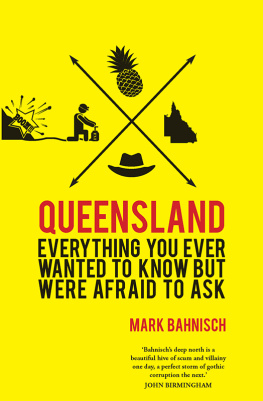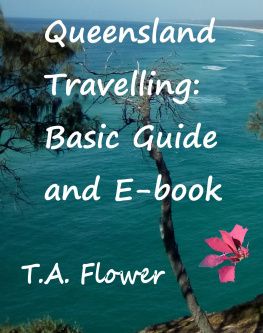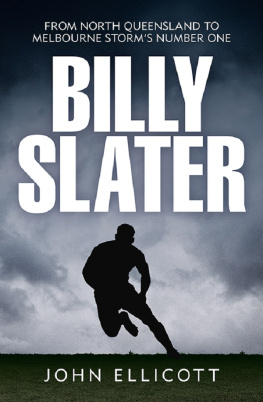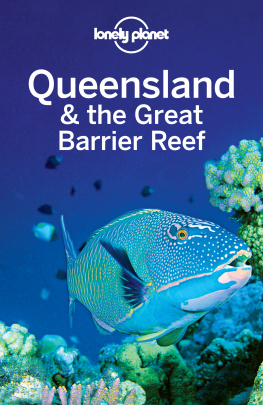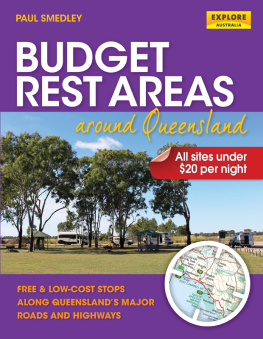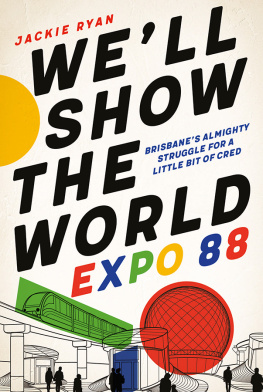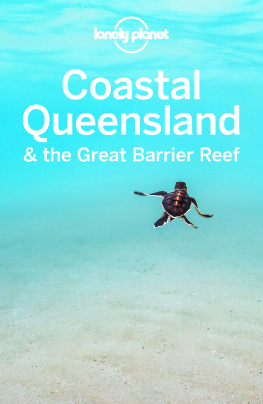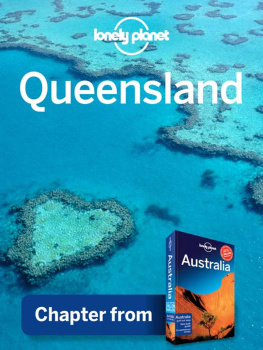
MARK BAHNISCH is the founder of the award-winning political blog Larvatus Prodeo and his commentaries and analyses have been published in The Monthly, Crikey, New Matilda, The Drum, the Australian Financial Review, Australian Literary Review and elsewhere.
In early 2015, Mark wrote a series of analytical articles on the Queensland election for Guardian Australia. He covered the 2006 Queensland election for Crikey, and was a key writer for its 2009 campaign blog, Pineapple Party Time. In 2012, as the director of FAQ Research, he again partnered with Crikey to edit an issue investigating coal seam gas and the state election, called Behind the Seams. He now blogs at The New Social Democrat.
Mark has a PhD in sociology from the Queensland University of Technology, and has lived in Brisbane for most of his life.
QUEENSLAND
EVERYTHING YOU EVER WANTED TO KNOW BUT WERE AFRAID TO ASK
MARK BAHNISCH

A NewSouth book
Published by
NewSouth Publishing
University of New South Wales Press Ltd
University of New South Wales
Sydney NSW 2052
AUSTRALIA
newsouthpublishing.com
Mark Bahnisch 2015
First published 2015
This book is copyright. Apart from any fair dealing for the purpose of private study, research, criticism or review, as permitted under the Copyright Act, no part of this book may be reproduced by any process without written permission. Inquiries should be addressed to the publisher.
National Library of Australia Cataloguing-in-Publication entry Creator: Bahnisch, Mark, author.
Title: Queensland: Everything you ever wanted to know but were afraid to ask / Mark Bahnisch.
ISBN: 9781742234342 (paperback)
9781742241999 (ePub/Kindle)
9781742247281 (ePDF)
Notes: Includes index.
Subjects: Political parties Queensland.
Political campaigns Queensland.
Australians Queensland Attitudes.
Queensland Politics and government.
Queensland Social life and customs.
Queensland Social conditions.
Queensland Description and travel.
Dewey Number: 324.09943

Design Josephine Pajor-Markus
Cover design Natalie Winter
All reasonable efforts were taken to obtain permission to use copyright material reproduced in this book, but in some cases copyright could not be traced. The author welcomes information in this regard.
CONTENTS
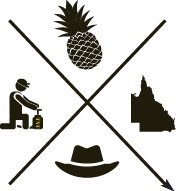
WE HAVE NEVER BEEN MODERN
In 1999, Rosie Scott wrote in The Red Heart:
Queensland seems to have a similar meaning for Australian writers as the Deep South has for American writers, as a kind of rich seedbed for the original, the flamboyant, the decadent, the extreme. It is definitely partly to do with the landscape. In Brisbane, for instance, the rickety old wooden Queenslanders drenched in bougainvillea, the palms, the astounding number of birds even in Red Hill where I lived, the jacarandas, all are unique in Australia There is a sense of limitless space It is also something to do with the extremes you find in Queensland too the turbulence of the politics and the tendency to authoritarian government whatever the party, the corruption and ruthlessness on one hand, the idealism on the other There are possibilities in Queensland eccentricities, ambiguities, extremes that are particularly evocative for writers who are born or live here for awhile.
Such quotes are multiple, and return again and again to the same motifs, suggesting a commonality of experience but also an inability to quite pin down the state of Queensland. Its spacious, but it can feel intimate. Its authoritarian, but theres a sense of freedom because you can disappear and reappear and reinvent yourself. Its cruel, but its dreams are big ones. Extremes are normal in Queensland.
Premier Campbell Newman, soon to be a byword for extremism, abolished the Queensland Premiers Literary Awards as one of his first acts after his lopsided landslide victory in 2012. Novelist and screenwriter Gerard Lee wryly observed in 2002 that French theory had never really resonated in Queensland, a state where it was so hard to be a writer that no one was particularly happy about contemplating the death of the author, since poverty and lack of recognition seemed like it was threatening precisely that fate for individual authors. Writers have often beaten a path out of the state, or like Xavier Herbert, come here to rest in unlikely nooks. Newman was defeated after only one term and his successor, Annastacia Palaszczuk, struck a contrasting note by naming herself Minister for the Arts on assuming office, portending a swing of the pendulum for writers and artists.
This book is all about the constant tension exemplified in Queenslands distinctive political culture and history between the old and the new, between the extremes. This state, I shall argue, is always caught in that moment, at once facing a bright and modern future and teetering on the brink of a darker and murkier past. When Newman was elected, it was booted about that a coal seam gas well had been drilled on the Bjelke-Petersen family property at Bethany, just outside Kingaroy. It was said that Johs grave had been disturbed, and his spirit now wandered powerfully over the land again. This probably isnt true, but Queensland is full of tales like this, and they often speak a truth.
It might seem odd to frame a book on Queensland by quoting French sociologist Bruno Latours We Have Never Been Modern title but, then, Gerard Lee, on his first visit to Europe, found himself in Paris writing a novel about Brisbane. And the author of this particular book is a sociologist. Also, notorious former premier, Sir Johannes Bjelke-Petersen, thought of himself as modern, always keen to see cranes on the skyline, not happy if Queensland wasnt surpassing everywhere else in generating wealth from its soil. What is modernity, though?
The Latin word modernus derived from modo, meaning just now, doesnt signify what we think modern means. Its much more clearly temporal, having the sense of something that has just happened, just now, only an instant ago. It captures that fleeting sense of the present, its inability to be grasped. The Romans, if they had the concept we have of modern, would not have approved. For Romans, anything that was a departure from mos maiorum, the way of our ancestors, was terrible, and would probably require expiation. The new was not good, the old celebrated.
It wasnt really until the Renaissance that modern came to have the meaning we now ascribe to it, and then it was a contrast with the ancient, the classical, the Roman and the Greek, which was absolutely better than the new. It was necessary to ensure that the new conformed to the ancient, and thats why, in a nutshell, St Peters in Rome doesnt look that dissimilar to that incredible first-century edifice on the other side of the Tiber, the Pantheon. It was only with the Enlightenment that the Querelle des Anciens et des Modernes (the quarrel of the ancients and the moderns) could launch itself, a wrangle between the forces of rationality and those of immemorial custom. Something new was possible under the sun, it was asserted, and that something could be good.
Next page
